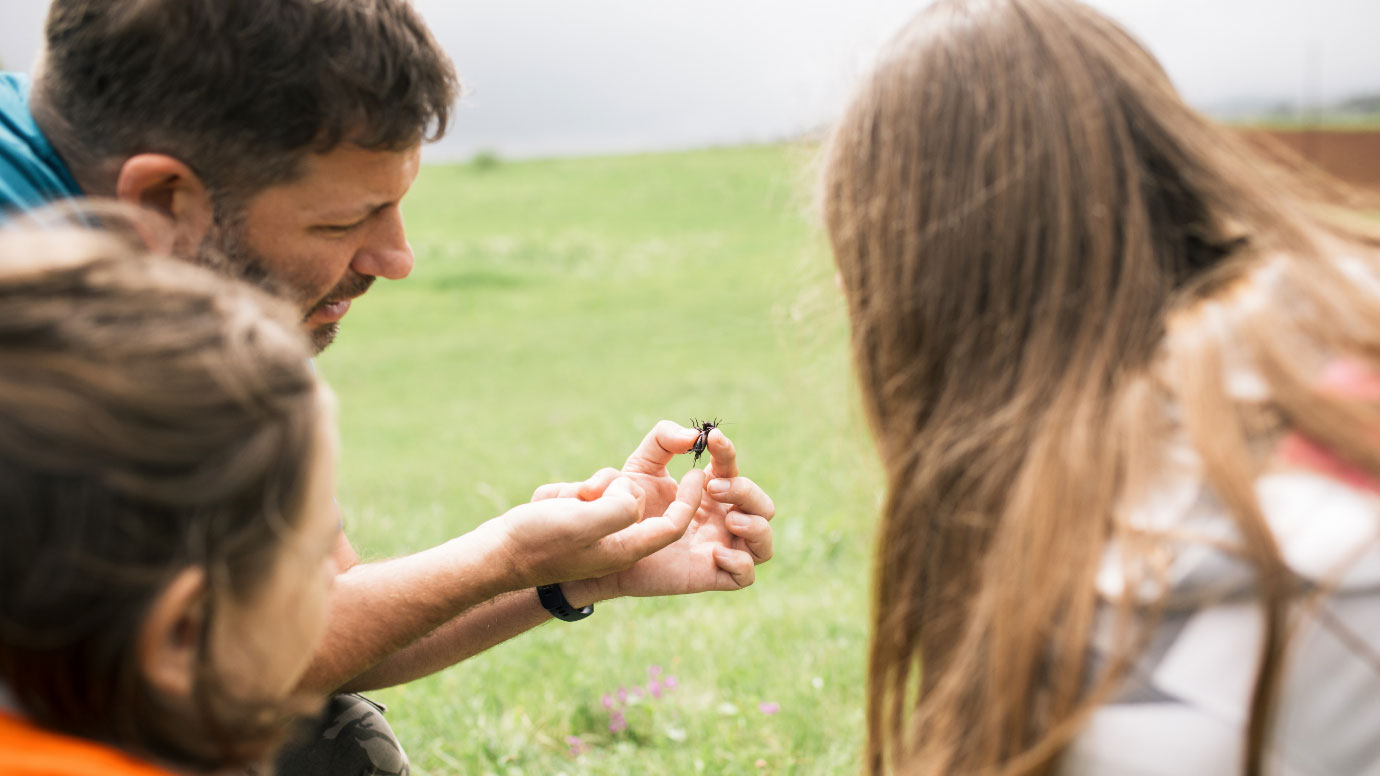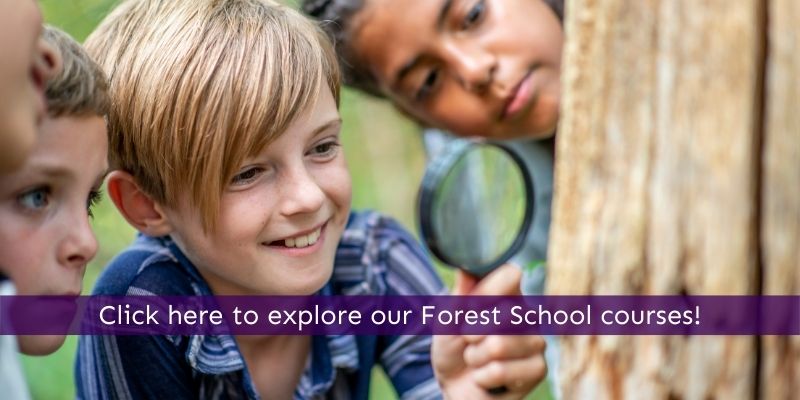Teachers and leaders who are passionate about holistic education will have heard about Forest School Programmes.
It’s an exciting area to study for anyone who loves the outdoors and is interested in education, conservation, and wildlife. No matter if you’re currently working in this space or not.
If these are elements you’d like to be included in your career, it’s the perfect time to get qualified for Forest School Leader jobs.
What Does a Leader of a Forest School Programme Do?
A Forest School Teacher, referred to as a ‘Leader’, has several responsibilities. Mainly, their aim is to run a programme that educates and inspires young children through a variety of outdoor activities and tasks.
These learning activities are designed to be fun and engaging. They could involve anything from preparing a campfire to making knots out of rope or building woodland shelters.
In this role, you take charge of everything that’s involved in delivering, planning and implementing the school’s programme, using holistic learning that encompasses the modern ethos of outdoor education.
Becoming a qualified Forest School Practitioner also requires you to be creative and adaptable, as you tailor activity ideas to different individuals and their learning needs.
For example, you could develop forest school activities that incorporate additional tools to enhance forest sounds or sensory items to enable a visually impaired student to learn the same information as the other students.

What Must Be Considered in a Forest School Programme?
To help you get better prepared for Forest School Teacher jobs, it helps to know what the outdoor learning programme you put together must consist of.
The programme must be continuous, with regular learning experiences. The structure is important, and the programme must be accessible to a variety of young learners with frequent sessions and classes.
2. Natural Environment
The lessons must take place in an outdoor setting or a natural environment; it is not restricted to just forests. This is to support the development of the student’s relationship with the natural environment.
3. Learner-Centered
The programme must incorporate a range of different learning experiences that allow for personal growth and development. This means that the leader should aim to link the experiences learnt to school, home and work.
4. Holistic Development
The aim is to promote holistic development throughout and to encourage all children and young people to become independent creative learners in the process. Tasks must invoke physical, social, cognitive, linguistic, emotional, social, and even spiritual development for the young learner.
5. Controlled Risks
Children and young adults are encouraged to take supported risks that are adapted to the environment. Curiosity is encouraged and leaders will be able to build on individuals’ instincts, motivation, confidence, and positive attitude.
6. Qualified Professionals
A successful Forest School Programme can only be run by qualified professionals who are committed to learning, development and always carrying out professional practice. Leaders must provide safe and secure measures to the programme and always observe and support students.

How Do I Become a Leader of a Forest School Programme?
If you’re interested in pursuing Forest School jobs, there is a different training course available depending on the type of role you’re looking to get into.
Levels of Forest School Training
Level 1 is an introduction to Forest School and gives you a basic understanding of the principles and practices. It does not qualify you to run a Forest School, but it may allow you to be a helper or volunteer within an established programme.
Level 2 is perfect for aspiring Forest School Assistants, as studying at this level will enable you to take on a proactive role by supporting the young learners.
Level 3 will qualify you to become a Forest School Leader and run a Forest School Programme. This level equips existing Teachers and Youth Workers to develop a Forest School’s lesson plans and sessions, facilitate groups and manage the programme in an outdoor setting.
.jpg)
Get Qualified Through Online Study
Our Level 3 Certificate for Forest School Leaders is an Ofqual regulated qualification designed to equip you with the skills to get the most senior leadership jobs in Forest Schools.
In this online course, you will learn the necessary theory on five core topics which include:
-
Delivery
-
Learning and Development
-
Planning and Preparation
-
Practical Skills
-
Forest School Programmes and the Woodland Environment
This course also includes mandatory practical training so you get hands-on experience of working in this type of environment, and a range of assessments to test your skills.
A huge benefit of our course is that it can be studied online and at your own pace.
It’s important to highlight that anyone wanting to start this course must be 19+ years old to study. The minimum age for a person to run a Forest School is also 21. This is a requirement set out by the Forest School Association and the Department for Education.
If you’re at the right age for this career path, and getting creative with Forest School activity ideas sounds right up your street, then working with children in this way will no doubt be highly rewarding.
Visit our website through the link below for more details on this course and how to get enrolled.


















